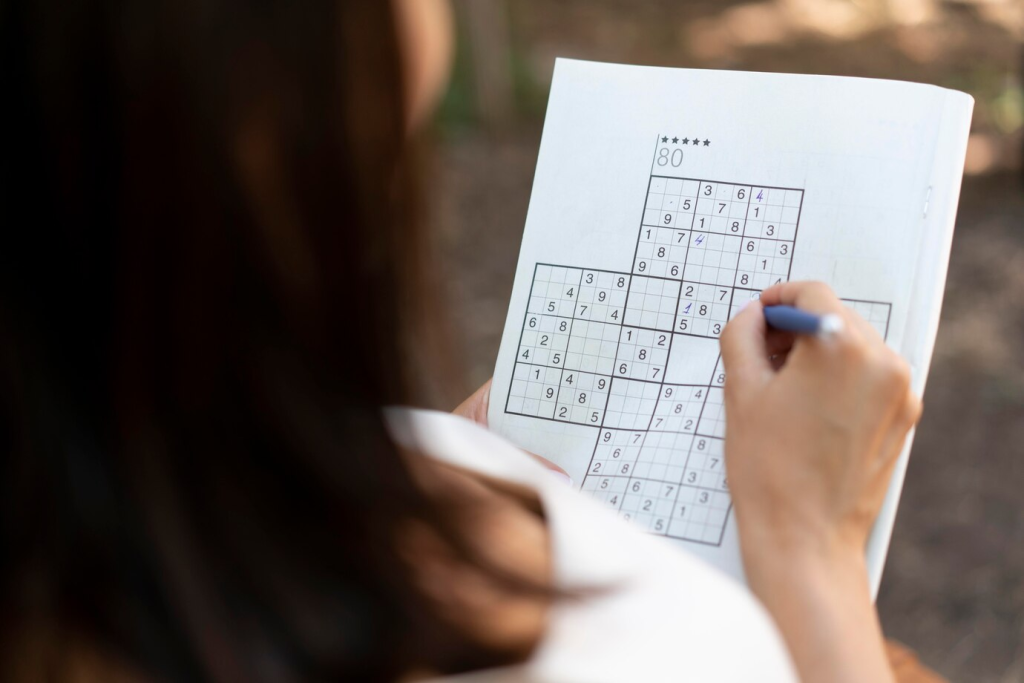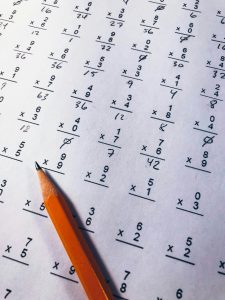How Math Puzzles Can Improve Your Child’s Problem-Solving Skills

As a parent, you want your child to excel in both academics and life skills. In today’s fast-paced world, problem-solving abilities are more important than ever. The good news? Math puzzles offer a fun and engaging way to help your child develop these essential skills.
Math puzzles not only engage children but also help them develop critical thinking, logical reasoning, and a deeper understanding of mathematical concepts. In this blog, we will explore the various ways in which math puzzles can enhance problem-solving skills in children. We will delve into the benefits of incorporating math puzzles into your child’s learning routine, the different types of puzzles available, and effective strategies for implementation.
Why Math Puzzles are a Powerful Tool for Developing Problem-Solving Skills
Encourages Critical Thinking
Math puzzles require children to analyze problems, consider different approaches, and evaluate solutions. This process strengthens logical thinking and decision-making, which can be applied in both math and real-life situations.
Promotes Logical Reasoning
Many math puzzles involve patterns and sequences, teaching children to recognize relationships and apply logical reasoning. This skill is valuable not only in mathematics but also in everyday problem-solving.
Enhances Creativity
Solving puzzles encourages creative thinking, as children explore different methods to find solutions. This fosters flexibility and innovation in their problem-solving approaches.
Builds Resilience
Math puzzles can be challenging, but they teach children perseverance. Working through difficulties helps build resilience, enabling children to tackle obstacles in various areas of life.
Boosts Confidence
Successfully solving puzzles boosts children’s confidence in their math abilities. This sense of accomplishment encourages them to take on more complex problems, enhancing their self-esteem.
Incorporating math puzzles into your child’s routine not only boosts problem-solving abilities but also strengthens mental math, a critical skill for mathematical fluency
Encourages Collaboration
Collaborative puzzles promote teamwork and communication. Working together allows children to exchange ideas, learn from others, and improve their problem-solving skills.
Types of Math Puzzles for Children
To effectively enhance problem-solving skills through math puzzles, it’s essential to choose age-appropriate and engaging types of puzzles. Here are some popular types of math puzzles:
-
Riddles
Riddles are a fun way to challenge children’s thinking while introducing them to basic arithmetic or logical reasoning. They often require creative thinking and the ability to interpret clues.
Example Riddle: I am an odd number. Take away one letter and I become even. What number am I? (Answer: Seven)
-
Logic Puzzles
Logic puzzles require deductive reasoning and critical thinking skills. They often involve sets of clues that need to be analyzed and logically deduced to arrive at a solution.
Example Puzzle: Two fathers and two sons go fishing but only catch three fish. How is this possible? (Answer: There are only three people: a grandfather, his son, and his grandson)
-
Number Puzzles
Number puzzles involve numerical relationships and can include activities like Sudoku or magic squares. These puzzles engage children with numbers and require them to apply mathematical concepts.
-
Word Problems
Word problems encourage children to apply mathematical concepts in real-world scenarios. They challenge children to analyze the problem, identify the relevant information, and devise a solution.
Example Problem: If Cavin is now 40 years old and when he was six years old, his brother Mike was half his age, how old is Mike now? (Answer: Mike is 38 years old)
-
Pattern Recognition Puzzles
Pattern recognition puzzles help children identify sequences or patterns within numbers. These puzzles require children to observe the given sequence and apply their knowledge of patterns to determine the missing number.
Example Puzzle: What comes next in the sequence: 2, 4, 8, 16…? (Answer: 32)
Strategies for Incorporating Math Puzzles into Learning
Now that we understand the benefits of math puzzles and the different types available, let’s explore some strategies for incorporating these puzzles into your child’s learning routine:
-
Daily Puzzle Time
Set aside time each day for puzzle-solving activities as part of your child’s routine. This could be a warm-up exercise before homework or a fun family activity on weekends. Regular exposure to math puzzles will help develop problem-solving skills over time.
-
Use Technology
There are numerous apps and online platforms that offer interactive math puzzles tailored to different age groups. These resources can provide engaging ways for kids to practice their skills independently or with family members. Look for apps and websites that have a variety of puzzles and allow for progression in difficulty levels.
-
Create a Puzzle Corner
Designate a space at home where your child can access various math puzzles freely. This could include puzzle books, printable worksheets, or online resources. Having a dedicated puzzle corner encourages exploration and self-directed learning.
-
Encourage Group Work
Promote teamwork by having children solve puzzles in small groups or pairs. This collaborative approach fosters communication skills while allowing them to learn from each other’s thought processes. Encourage children to discuss their strategies and problem-solving techniques.
-
Celebrate Achievements
Recognize when your child successfully solves a puzzle – whether through verbal praise or small rewards. Celebrating their achievements motivates them to continue tackling challenging problems and reinforces their confidence in their abilities.
Conclusion: Summing Up
Math puzzles offer a fun and effective way to boost your child’s problem-solving skills. They enhance critical thinking, logical reasoning, creativity, and confidence—key traits for tackling challenges to learn math and beyond.
Parents and educators can seamlessly integrate math puzzles into daily routines, making math an engaging adventure. For structured skill development, explore SIP Abacus programs. With their proven abacus-based curriculum, children develop strong mental math abilities, focus, and confidence.
Give your child the tools to excel in problem-solving and math. Introduce math puzzles today and explore SIP Abacus programs for lasting growth!



